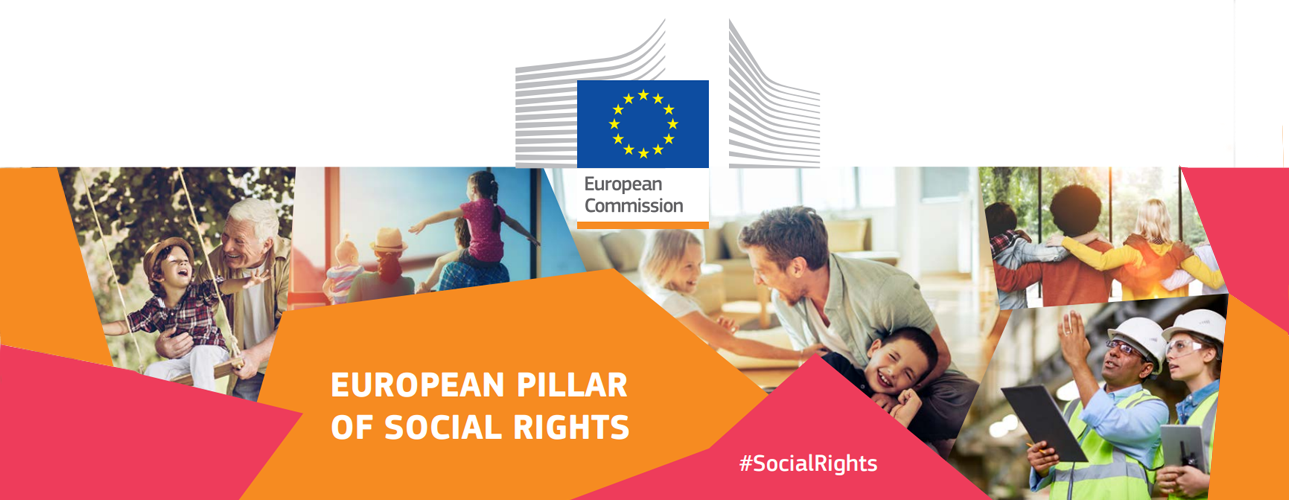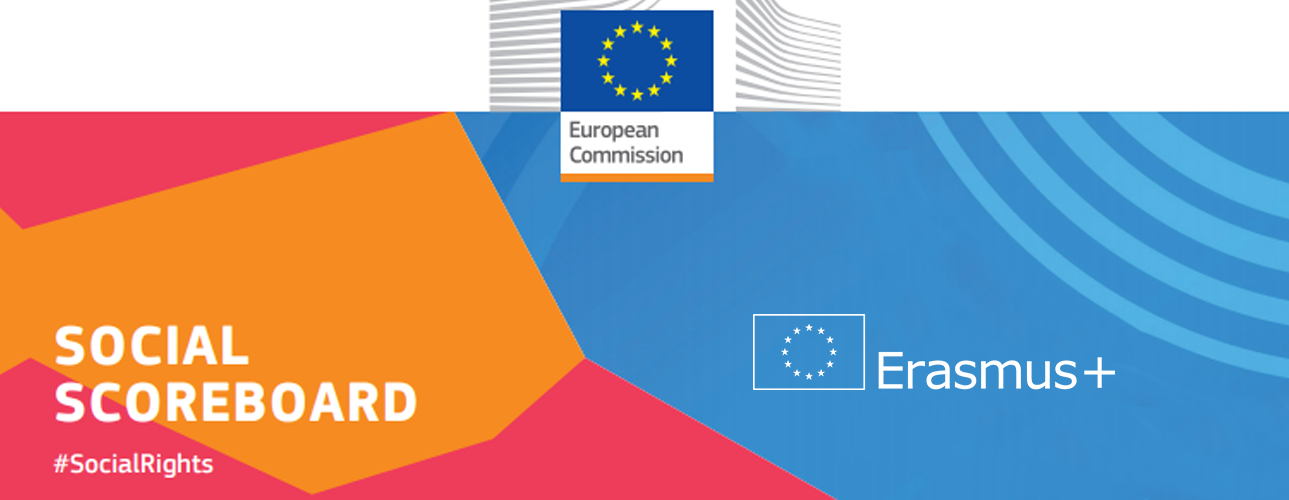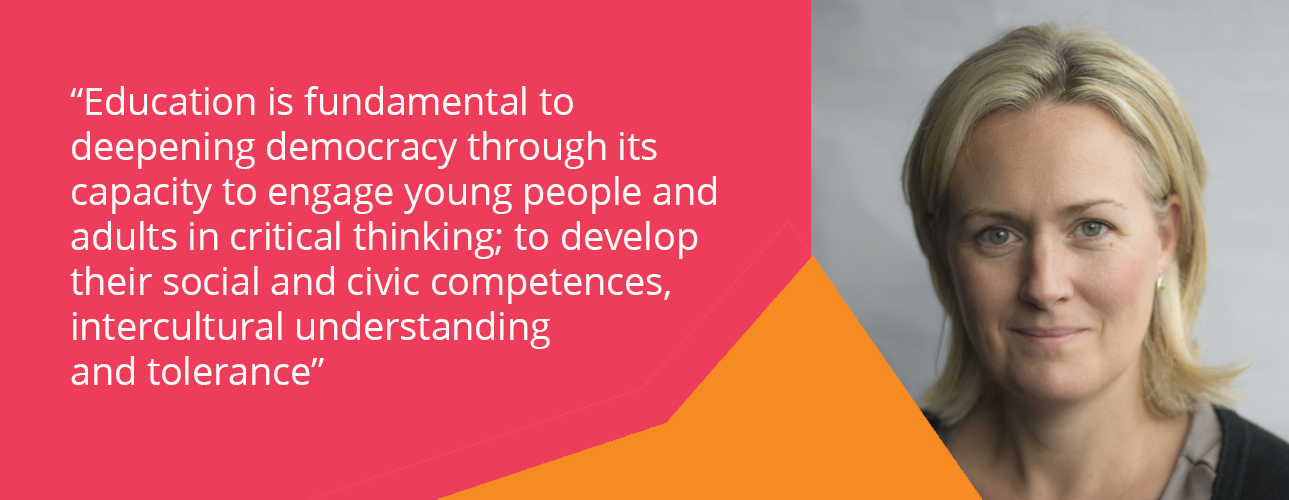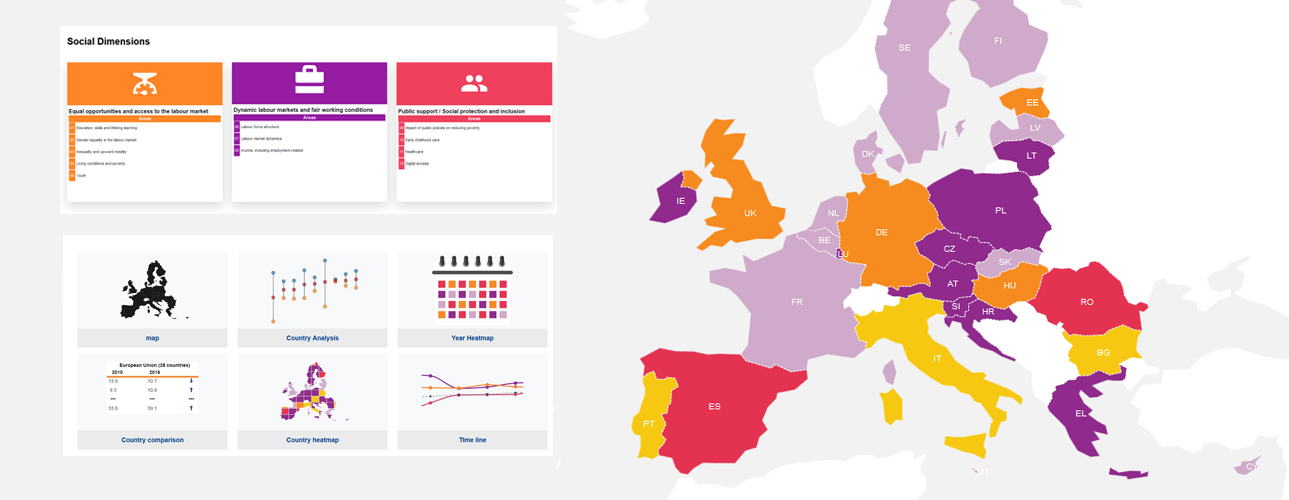The European Pillar of Social Rights: What it Means for Education and Erasmus+
The European Pillar of Social Rights states a commitment to building a fair and more social Europe, and sets out key principles for social policy across member states. Denise Shannon from our Client Services team reflects on the European Pillar of Social Rights and looks at what it means for education in general, and Erasmus+ in particular.
What is the European Pillar of Social Rights?
The European Pillar of Social Rights (the 'Social Pillar') is the EU's commitment to delivering new and more effective rights for Europe’s citizens. It sets out twenty key principles under three 'people-centred' categories:
- Equal opportunities and access to the labour market
- Fair working conditions
- Social protection and inclusion.
The Social Pillar is pioneered by Commission President Jean-Claude Juncker and aims to restore balance to the social dimension of Europe. It was proclaimed and signed on 17 November 2017. On that occasion, President Juncker remarked "Today we commit ourselves to a set of 20 principles and rights. From the right to fair wages to the right to health care; from lifelong learning, a better work-life balance and gender equality to minimum income: with the European Pillar of Social Rights, the EU stands up for the rights of its citizens in a fast-changing world." In short, the Social Pillar calls for a common understanding across Europe of what is socially fair.

Strengthening the social dimension of Europe
The Social Pillar will work to strengthen the social dimension of EU policy. It includes areas not previously addressed by the Commission, including provision of a minimum wage and gender equality. It takes into account the changing realities of society and the world of work. It draws on existing international and European charters including:
- The Community Charter of the Fundamental Social Rights of Workers
- The European Social Charter
- The Charter of Fundamental Rights of the European Union.
The Social Pillar also highlights and builds on existing work in the field of Education. The Paris Declaration 2015 was formulated in the aftermath of terrorist attacks in Europe and outlines concrete actions for member states to implement policy reform. It informed the 2018 Council Recommendation on promoting social inclusion and common values through education and non-formal learning. The 2018 Recommendation promotes inclusion and common values in education to prevent violent extremism and radicalisation. It refocuses emphasis on:
- the acquisition of social and civic competences
- common EU values
- understanding of democracy
- critical thinking
- intercultural dialogue through all forms of learning and across all sectors of education.
The Social Pillar brings together these and other policies and will make existing European Union initiatives, programmes and policies more visible, understandable and explicit for EU citizens and actors at all levels. It will also add new elements to work already being done and develop new initiatives to enable progress on the twenty key principles.
What can member states do?
The principles and rights in the Social Pillar are not directly enforceable by the EU. As President Juncker pointed out at the proclamation, “national social systems will still remain diverse and separate for a long time". However, member states will be asked to support and help deliver the provisions of the Pillar. At national level, social partners may support its implementation by taking it into account when designing and implementing relevant policies.
Tracking implementation of the Pillar
The EU have developed a Social scoreboard in tandem with the Pillar to track member states’ progress in social policy. The scoreboard collates data on:
- gender equality
- the right to fair wages
- work life balance
- adequate minimum income and pensions.
The European Semester, the annual cycle of economic policy coordination among EU member states, will be used to monitor implementation.

How will the European Pillar of Social Rights be supported?
The Social Pillar will be supported by the European Social Fund, the European Structural and Investment Fund, and other key initiatives for social cohesion. These include the Youth Employment Initiative, the European Globalisation Fund and the Fund for European Aid to the most Deprived, which will play a key role in the follow up to the Social Pillar. The European Pillar of Social Rights will play a role in all funding programmes designed post-2020. This will have an important impact on the priorities of the successor programme to Erasmus+.
What does the Pillar mean for Education?
The Charter of Fundamental Rights of the European Union sets out a general right to education and training throughout life. The Social Pillar goes further than the Charter by focusing on quality and inclusiveness.
The European Pillar of Social Rights sets out Education, training and life-long learning as the first of its twenty principles. It states that each of us has the right to quality and inclusive education, training and lifelong learning. This is essential in order to maintain and acquire skills that enable us to participate fully in society and manage successful transitions within the labour market.
The Social Pillar aims to ensure quality in both formal and non-formal education. It emphasises the relevance of education and skills for the labour market and social cohesion. By ‘inclusive education’ it means that lifelong learning should be accessible for all: catering for diverse backgrounds and abilities and ensuring access on an equal basis.
The Social Pillar seeks to empower all educational practitioners and leaders to work in this context and use pedagogical approaches that are adapted to the diverse needs of learners. It acknowledges the role of wider actors, and aims to enhance cooperation between community, parents, civil society, social partners and the non-formal sector.
What role does Erasmus+ have to play?

Erasmus+ will be instrumental in supporting the cooperation and exchange of experience needed to reinforce a broader role for education in the policy and practice of member states. It will be important that Education is seen as having a key role to play in realising the social dimension goals of the European Pillar of Social Rights. Education is fundamental to deepening democracy through its capacity to engage young people and adults in critical thinking; to develop their social and civic competences, intercultural understanding and tolerance.
Find Out More
- Download the European Pillar of Social Rights booklet here
- Download the European Commission's fact sheet here
We welcome contributions to 'Insights' at comms@leargas.ie.

